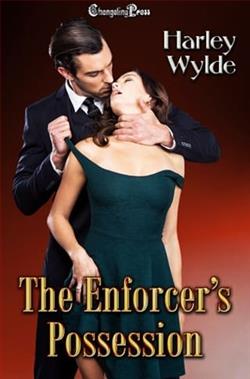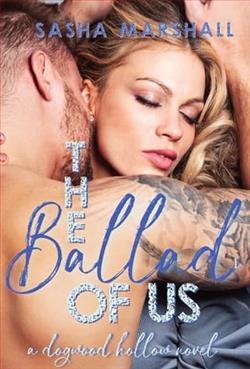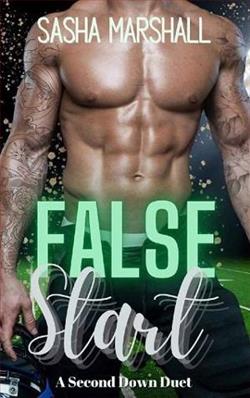Page 34 of The Darkness
After a silence that lasted a minute or two yet somehow never became uncomfortable, she surprised herself by saying: ‘I had a meeting with my boss. He wants me to drop the investigation.’
‘Immediately?’
‘Yes.’
‘Why? Are you going to?’
‘I interviewed a man I shouldn’t have. It’s a long story but, basically, my inquiry overlapped with another investigation. I hadn’t a clue it was going on, though I have to admit that was partly my fault for not keeping my boss in the loop. He had no idea what I was up to.’ She heaved a sigh. ‘The detective who originally handled the case is furious with me as well. To be honest, I’m in a bit of a mess.’
‘It’s bound to sort itself out. I’m sure of that.’ As usual, Pétur seemed unperturbed. ‘And if I know you, you won’t give up without a fight.’
Hulda laughed. ‘No, I managed to squeeze one more day out of him. My last day.’
‘Then you’d better make good use of it.’
‘You can say that again.’ She raised her glass and took the first sip. ‘In other words, I’d better go easy on this superb wine.’
‘And once tomorrow’s over, you’ll be free. Congratulations!’
‘You certainly know how to look on the bright side.’
‘Shouldn’t we celebrate your retirement?’
‘If you like,’ Hulda said, her voice mellow. ‘This is quite a celebration we’re having already. It’s absolutely delicious.’
‘We could climb Esja,’ Pétur suggested. ‘What do you say to that? I’ve lost track of how many times I’ve been up there, but I never get tired of it. Not everyone’s lucky enough to have a mountain like that in their backyard. And the view of the city on a clear day …’
‘You don’t have to convince me – I’m in,’ Hulda replied, and for the first time in ages she found herself genuinely looking forward to something. Just for a moment, she toyed with the idea of abandoning Elena and putting herself first, giving in to Magnús’s wish for her to retire with immediate effect. She was on the point of suggesting they climb Esja tomorrow instead.
The words teetered on the tip of her tongue.
But when she did speak it was to say: ‘Right, the day after tomorrow it is. I’ll need one more day for the inquiry.’ And instantly she experienced a powerful, unsettling premonition that this had been the wrong decision.
For the second evening in a row, they overdid the red wine. Hulda was dreading the morning, worrying that she would oversleep again and be too hung-over to achieve anything useful. But Pétur seemed to like having her there, and she had to admit that she was enjoying his company. It was well past midnight; the hours had passed in a blur, conversation seemed to come so easily to them. Reluctant to put an end to a lovely evening, Hulda sat tight on his leather sofa.
They were sitting side by side now, still a discreet distance apart. Pétur was obviously taking care not to get too close: he knew what he was doing.
‘You told me yesterday that you’d never met your father,’ he remarked.
Hulda nodded.
‘Did your mother ever marry? Or did she bring you up on her own?’
‘No, she never married. We lived with my grandparents,’ Hulda said. ‘My grandfather and I were great friends – he was the person I was closest to. I think we must have been very alike in some ways. I suppose he was like a bridge to that side of my family. My mother and I were never that close, but thanks to Granddad I felt I belonged, if you know what I mean. I never met my relatives on my father’s side. Without Granddad, I don’t think my childhood would have been a very happy one.’
Pétur nodded and she sensed that he understood.
‘I’d like to have met my father,’ she went on, in a low, disconsolate voice, feeling weepy all of a sudden. That was the wine: she knew she was tipsy but was enjoying it too much to stop drinking.
‘What was it like,’ Pétur began, considerately changing the subject, though without straying too far from what they had been discussing, ‘growing up with a single mother in those days? I know it’s taken for granted now, but I remember how people used to talk about one of my schoolfriends who didn’t have a father – I mean, no one knew who his father was.’
‘It was tough,’ Hulda acknowledged, reaching out for the bottle and refilling their empty glasses. ‘Very tough. She was forever changing jobs, from what I remember. It was unusual at the time for a woman to be a breadwinner, as you know, and she couldn’t always work as much as she wanted to because of me. It was a real struggle. We were quite hard up – I don’t think it’s any exaggeration to say that. The only reason we had a roof over our heads was because we were lucky enough to live with my grandparents. We always had food on the table but there was no money to spare for anything else; none of us could afford any luxuries. Growing up, I found that hard, as I’m sure you can imagine.’
‘Well, to be honest, I can’t really imagine what that’s like,’ Pétur said slowly. ‘My father was a doctor like me, so we were always well off. Luckily. The worst thing about poverty is the effect it has on the children.’
‘Actually …’ Hulda broke off, feeling a bit fuddled by the wine and wondering about the wisdom of what she had been about to say. How much ought she to tell this man? Could she trust him? Then again, maybe it would be good, healthy even, to open up about the past once in a while. She’d been bottling things up for far too long: maybe this was the chance she’d been waiting for. She had never been able to discuss personal matters at the office. None of her younger colleagues was remotely interested in hearing about the ups and downs in the life of a sixty-four-year-old woman. What’s more, she could count her friends, herrealfriends, on the fingers of one hand, on a good day. She decided to risk it: ‘Actually, things could have turned out very differently.’
‘Oh?’ said Pétur. His answer came so promptly, with no sign of slurring, that Hulda wondered hazily if she had knocked back more of the wine than him.















